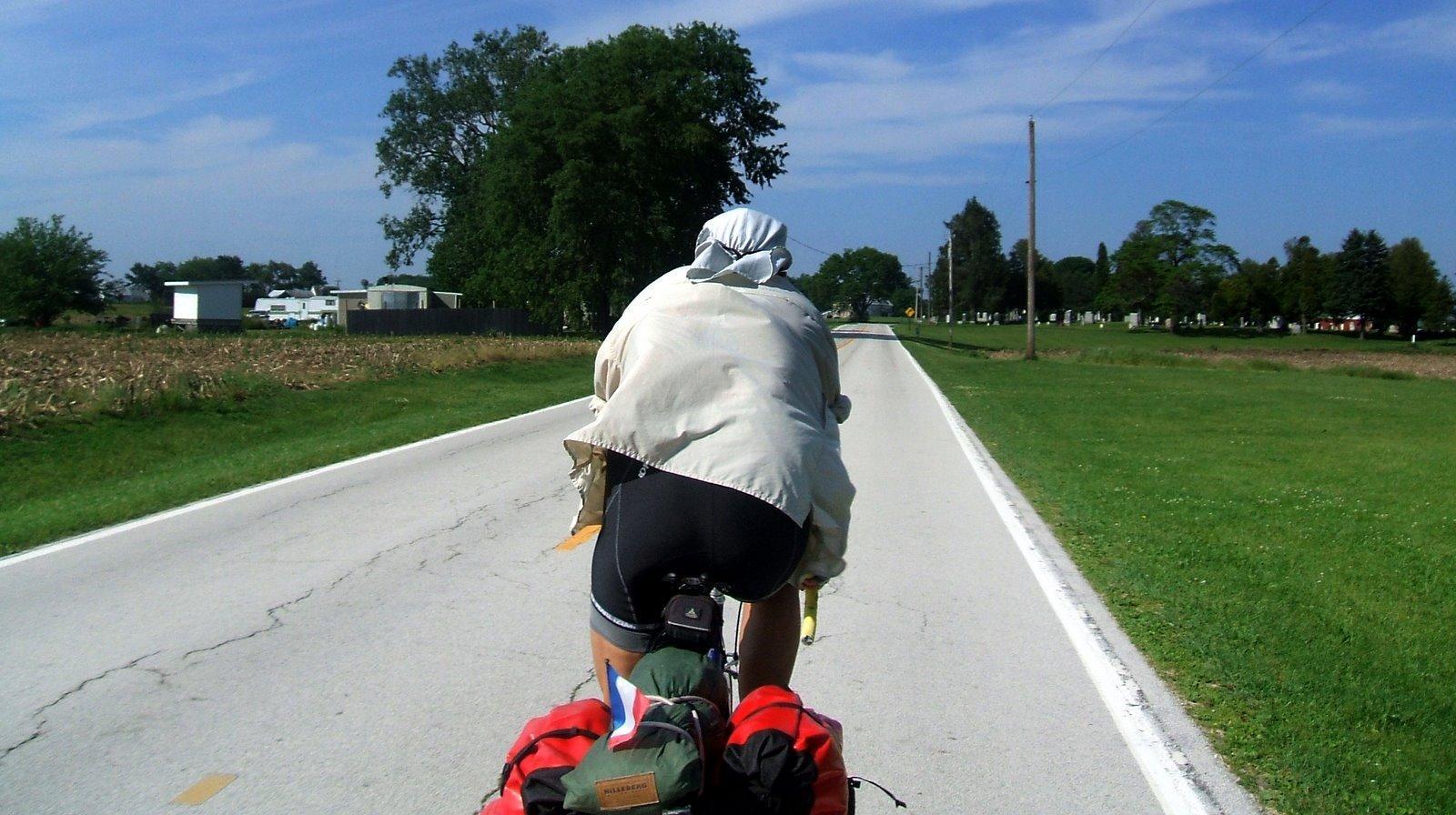May 24; Huron to Gibsonburg, Ohio

| Heart | 2 | Comment | 0 | Link |
BANKS THAT DON'T want your money. Very un-American, that, but true nevertheless.
One of the novelties of life is that for many years I have worked for myself. People send me cheques although not always as many as ask to have work done. I work less and less now but I still get occasional cheques in dollars. It seemed to make sense to open an account in the USA rather than pay bank and currency charges.
We tried on a sunny afternoon in Fremont, a pleasant place that has supplied one US president, of which the town speaks enthusiastically, and a world-class spy, about whom it is noticeably silent. We never got to learn about the president because his home was closed on Mondays but I do know about the spy, whose story I'll tell you in a moment.
The first bank we chose had somewhere in the shade to park our bikes. Our instantly appointed "personal banker" struggled to hide that she was eating a banana and listened with professional calm and personal panic. After a while she said she would have to consult more learned types in an unseen corridor. And when she returned it was to say hers was a "personal relationship" bank, which turned out to mean it wanted our money only if we looked likely to buy insurance and take out loans. If you want to avoid it, which urge you to do, it was the Huntington Bank.
The cheque in my hand was drawn on the US Bank, which sounds like the national treasury but isn't. Perhaps, said the woman with a half-eaten banana in her drawer, they might be more interested.
We went there and sat for ages with a lovely woman called Rachel who did her best but was finally defeated when an unseen adviser in Minnesota, the bank's home, said there could be no guarantee we weren't international money launderers if we didn't have at least a temporary address in the USA. Or was it that without an address the bank had no way of getting its money back if I went overdrawn?
Whatever the reason, we left feeling the US Bank had done its best. And we left, too, with a pile of notes from the cashed cheque in our pockets, although less $3 of our own money we were charged because we weren't US residents.
As for the spy, he was called Kurt Frederick Ludwig, a good name for a spy, and he was born in Fremont in 1903. To tell his story from the end, he left Alcatraz in 1953 and was expelled from the country.
Kurt Ludwig was head of the German "Joe K" spy ring before the USA joined the second world war. He'd lived in Germany since childhood, he had visited America many times, and eventually he was sent to set up a spy ring to send pictures and messages in secret ink of American shipping and ports.
He was rumbled when British spy-catchers in Bermuda intercepted a letter to "Lothar Frederick" signed Joe K. Lothar was a name that Reinhard Heydrich (tight-lipped, icy-eyed Nazi etc) gave himself. Then - this is going to be too long a story to tell, so you'll have to accept this sort of thing happens in espionage - two men were arguing in Time Square in New York when one was hit by a car and the other ran off, grabbing his pal's briefcase as he went.
Another intercepted Joe K message, about a man called "Phil" being run over (Phil was known to be a German spy chief), let the police tie loose ends and they got to work. Ludwig took off by car with his "secretary" and drove round the country until he got to Missoula, Montana. There he abandoned his radio and other spy kit and carried on by bus. I have no idea if he was actually on the bus when he was arrested but, if you insist on knowing, I will try to find out for you.
He got 20 years in Alcatraz and got out of the death penalty for treason only because America and Germany hadn't yet gone to war. Moral: if you're thinking of becoming a spy, get your timing right.
AMERICAN FLAGS SEEN: 113
| Rate this entry's writing | Heart | 2 |
| Comment on this entry | Comment | 0 |
